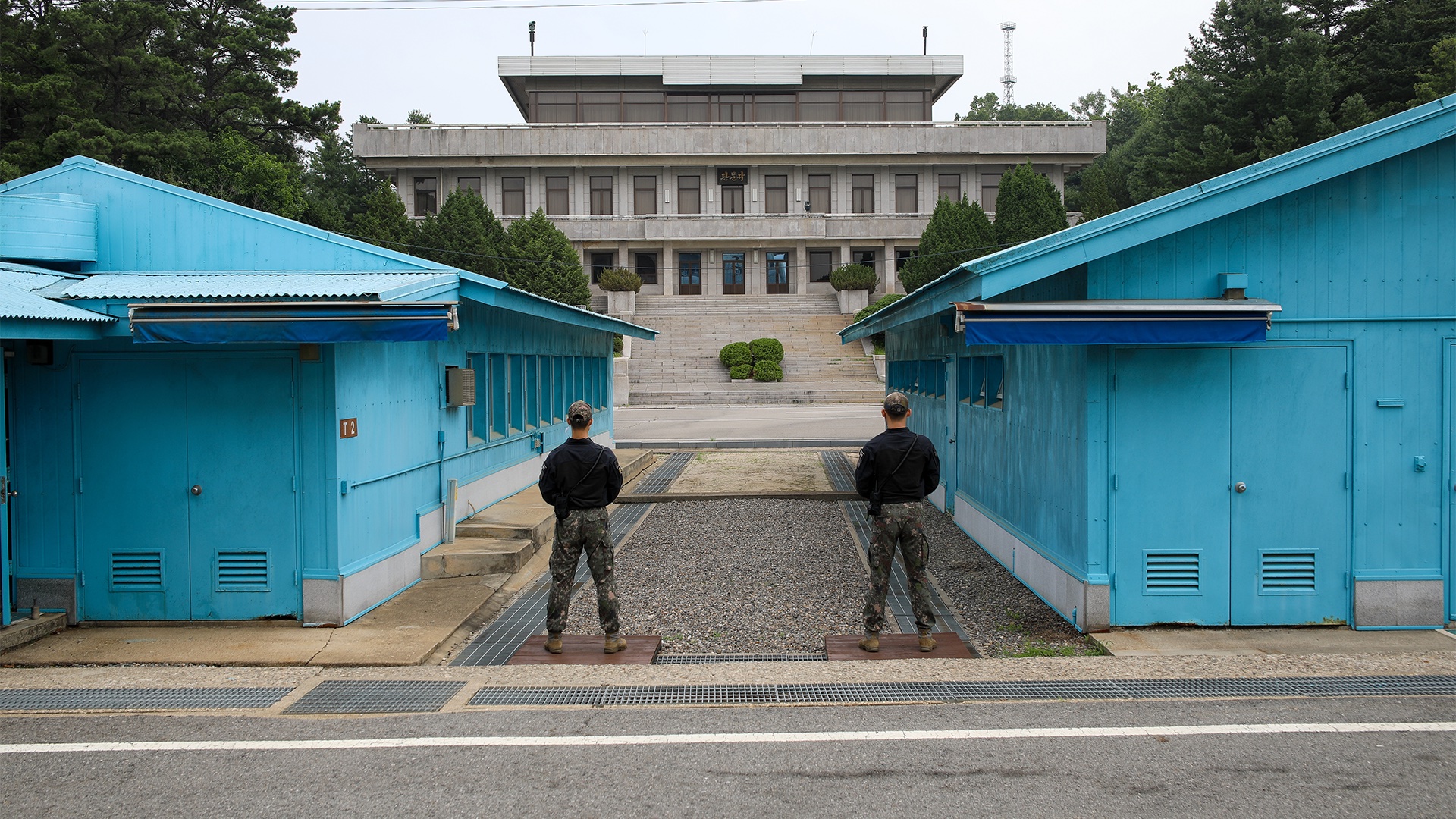

The United States has not decided whether or not to call Travis King, the U.S. Army soldier who crossed the border into North Korea last month, a prisoner of war. That’s according to a new report from Reuters, citing four unnamed American officials.
Officials told Reuters that no final decision has been made about King. As of now, and if the military decides not to list him as a prisoner of war going forward, King is not eligible for protections afforded to POWs. The United States and North Korea technically are at war, as the 1953 armistice did not formally end the war. Both nations are signatories to the Third Geneva Convention, which outlines clear rules and guidelines for the treatment of prisoners. That includes letting POWs write to family and allowing the Red Cross access to them. Without that status, there are fewer legal protections.
Private King has been considered AWOL by the U.S. Army since July 18, when he crossed the border inside the Joint Security Area along the demilitarized zone between North and South Korea. King was serving with the 1st Battalion, 12th Infantry Regiment, 2nd Brigade Combat Team, 4th Infantry Division. He was serving in South Korea but was facing assault charges against a South Korean national. He spent two months in detention but was released on July 10 and expected to be sent back to the United States. He was set to be court-martialed when he returned to Fort Bliss.
Subscribe to Task & Purpose Today. Get the latest military news and culture in your inbox daily.
Before he left South Korea, however, the 23-year-old private attended a civilian guided tour along the Joint Security Area. During the tour, King — in civilian clothes — ran across the border to the North Korean side. The area of the tour is often full of tourists and has guards on site, according to reports from the Associated Press.
After 30 days AWOL, protocol calls for King to be listed as a deserter.
On Friday, United Nations Command, which directs the demilitarized zone, said that North Korea confirmed King was in its custody. UN Command did not elaborate, saying that it “did not want to interfere with the efforts to bring him home.”
Pentagon spokesman Gen. Pat Ryder also confirmed that communication was underway regarding King, but said that he did not have “any substantial progress” to report.
North Korea has detained several foreign nationals, including Americans. Many have faced harsh sentences but were released following high-level negotiations. In 2017, an American college student, Otto Warmbier, died only 22 days after he was sent back to the United States in a coma.
Speaking on Thursday, Ryder told reporters that King’s defection is under investigation and “we’ll know more later.”
The latest on Task & Purpose
- The US can’t use its $110 million drone base in Niger
- Inside an Air Force Pararescue mission in the middle of the Pacific Ocean
- Country music star Craig Morgan re-enlists at age 59
- What you need to know about the incoming Sergeant Major of the Marine Corps
- 2 US military veterans killed in Ukraine during intense fighting [Updated]